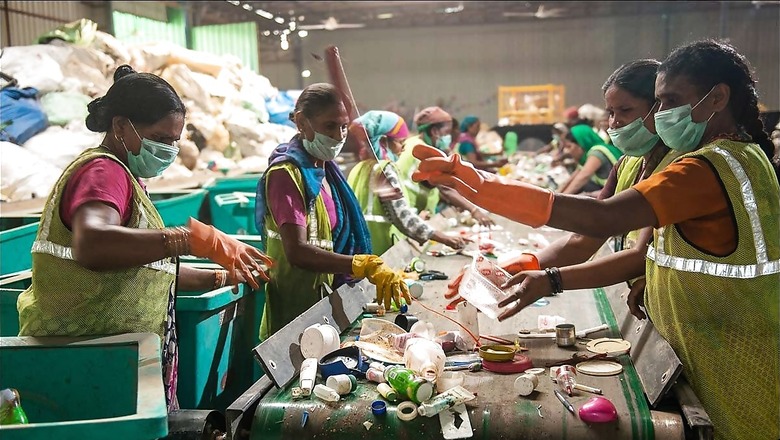
views
Waste management is an ever-growing concern in rapidly urbanizing India. As cities expand, so does the waste they generate, bringing forward an increasing necessity for sustainable waste management solutions. Amidst this challenge, self-help groups (SHGs) have emerged as unsung heroes, playing a pivotal role in keeping cities clean and promoting responsible waste disposal practices.
The Self-Help Groups (SHGs) are termed as informal associations of people who come together to find ways to improve their living conditions. These self-help groups, primarily composed of women from low-income households, initially gained prominence for various empowerment initiatives. However, over time, recognising the dual benefit of empowering these groups while addressing urban challenges, many SHGs shifted their focus to waste management.
Community Engagement and Awareness
When a group of ladies or volunteers come together, news spreads like fire. This very important tool has been one of the key aspects of SHG involvement in waste management. These groups conduct awareness campaigns and workshops to educate residents about the importance of proper waste disposal, segregation at source, and recycling. By actively involving the community, they create a sense of ownership and responsibility toward maintaining a clean environment.
In addition, SHGs use various communication channels to spread the message of responsible waste management. Door-to-door campaigns, street plays, and interactive sessions help in changing behaviors and attitudes towards waste. By instilling a sense of civic duty, they encourage citizens to participate actively in waste reduction and recycling efforts.
Segregation at Source
Effective waste segregation at the household level is the foundation of a successful waste management system. Thus, SHGs play a key role in promoting the practice of segregating waste into categories like organic, recyclable, and non-recyclable. This segregation allows for efficient processing and recycling of waste, reducing the burden on landfills.
Skill Development
Many SHGs focus on skill development within their communities, training individuals in waste management techniques. This includes educating them on sorting, composting, and recycling methods. By imparting these skills, SHGs not only contribute to effective waste management but also create livelihood opportunities for several community members. This also contributes to creating a circular economy.
Waste Collection and Recycling
Parallel to providing livelihood opportunities, SHGs often promote recycling and upcycling, generating newer economic pockets out of the waste. In several Indian cities, SHGs have taken charge of waste collection and recycling. They deploy their members for door-to-door waste collection, ensuring that waste is segregated at the source.
The collected waste is then appropriately sorted, recycled, or sent for further processing. This segregation enables the recycling of materials like paper, plastic, glass, and metals, reducing the volume of waste that ends up in landfills.
In addition, they collaborate with recycling units, turning waste materials into valuable products and creating a marketplace or selling them at suitable marketplaces.
Composting Initiatives
Awareness on composting organic waste and its uses in gardening has seen a widespread growth in both rural and urban spaces. Bringing the learnings to practice, SHGs often set up composting units where organic waste is converted into nutrient-rich compost. This compost is then used in community gardens or sold, generating additional income for the groups while reducing the need for chemical fertilizers.
Surely, Self-help groups in India are demonstrating that community-driven efforts can significantly impact waste management practices in urban areas. Their initiatives not only contribute to cleaner cities but also empower individuals and communities, fostering a sense of responsibility and pride in keeping their surroundings clean and sustainable.




















Comments
0 comment